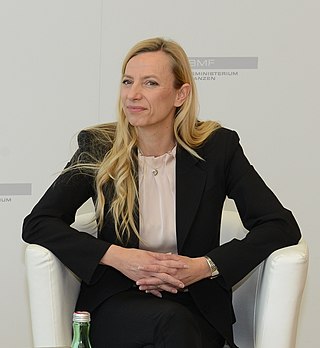
The Greens – The Green Alternative is a green political party in Austria. The Greens are in a coalition with the Austrian People's Party (ÖVP) in the Nehammer government. Before they were part of the Schallenberg government and the Second Kurz government. The current President of Austria, Alexander Van der Bellen, is from the Green Party.

The Alliance for the Future of Austria is a right-wing populist, national conservative political party in Austria.

Obdach is a municipality in the district of Murtal in Styria, Austria.

The Freedom Party of Austria is a political party in Austria, variously described as far-right, right-wing populist, national-conservative, eurosceptic and russophile. It has been led by Herbert Kickl since 2021. It is the largest of five parties in the National Council, with 57 of the 183 seats, and won 28.85% of votes cast in the 2024 election and it is represented in all nine state legislatures. On a European level, the FPÖ is a founding member of the Patriots.eu and its six MEPs sit with the Patriots for Europe (PfE) group following the dissolution of its predecessor, Identity and Democracy (ID).
A legislative snap election for the National Council in Austria was held on 28 September 2008. The previous election was held on 1 October 2006. The election was caused by the withdrawal of Austrian People's Party leader Wilhelm Molterer from the governing grand coalition on 7 July 2008. Due to dissatisfaction with the grand coalition and the two main parties, it was widely expected to be a realigning election, with gains for the opposition and up to seven parties expected to be in the National Council after the election. The losses for the government parties resulted in strong gains for the far right, while neither the Liberal Forum nor the Citizens' Forum Austria gained as much as 2% of the vote, defying earlier expectations. The result of the election was seen as strong for the far-right and in support of Eurosceptics.

Legislative elections were held in Austria on 15 October 2017 to elect the 26th National Council, the lower house of Austria's bicameral parliament. The snap election was called when the coalition government between the Social Democratic Party of Austria (SPÖ) and Austrian People's Party (ÖVP) was dissolved in May by the latter party's new leader Sebastian Kurz.

Presidential elections were held in Austria on 24 April 2016, with a second round run-off on 22 May 2016. However, the results of the second round were annulled and a re-vote took place on 4 December 2016.

Norbert Gerwald Hofer is an Austrian politician who was the leader of the Freedom Party of Austria (FPÖ) from June 2019 to June 2021. He previously served as minister of transport, innovation, and technology from 2017 to 2019 under Chancellor Sebastian Kurz.

Herbert Kickl is an Austrian politician who has been leader of the Freedom Party of Austria (FPÖ) since June 2021. He previously served as minister of the interior from 2017 to 2019 and general-secretary of the FPÖ from 2005 to 2018. He has been described as a far-right politician. Kickl calls himself Volkskanzler and advocates a Fortress Austria and Remigration.

Legislative elections were held in Austria on 29 September 2019 to elect the 27th National Council, the lower house of Austria's bicameral parliament. The snap election was called in the wake of the Ibiza affair in May, which caused the resignation of Vice Chancellor Heinz-Christian Strache and the collapse of the governing coalition of the Austrian People's Party (ÖVP) and Freedom Party of Austria (FPÖ). The government subsequently lost a motion of no confidence in parliament, before ÖVP Chancellor Sebastian Kurz was replaced by non-partisan Brigitte Bierlein on an interim basis.
JETZT – Pilz List, founded in 2017 as the Peter Pilz List, was a green and left-wing populist political party in Austria. It was founded by Peter Pilz, a former member of The Greens – The Green Alternative, who left his previous party in July 2017 and formed the Peter Pilz List to run in the October legislative election. The party won 4.4% of votes cast and 8 seats. In the 2019 legislative election, the party lost its representation in the National Council.

Juliane Bogner-Strauß, is an Austrian molecular biologist, biochemist, and politician in the Austrian People's Party (ÖVP). Since October 2013 she is Associate Professor at the Institute of Biochemistry of Graz University of Technology. From 18 December 2017 she was Federal Minister for Families and Youth of the Republic of Austria, since 8 January 2018 she is Federal Minister for Women, Families and Youth in the Federal Chancellery. Since 9 July 2018, she is the Federal Minister for Sustainability and Tourism.
Monika Forstinger is an Austrian businesswoman and former politician associated with the Freedom Party of Austria (FPÖ).

Karl Nehammer is an Austrian politician who has been the 29th chancellor of Austria since 2021. A member of the Austrian People's Party (ÖVP), he previously was Minister of the Interior from 2020 to 2021, general secretary of the ÖVP from 2018 to 2020, as well as a member of the National Council from 2017 to 2020. Nehammer assumed the chancellorship as the successor of Alexander Schallenberg, who resigned to return as Minister of Foreign Affairs.

Vienna, also known as Electoral District 9, is one of the nine multi-member state electoral districts of the National Council, the lower house of the Austrian Parliament, the national legislature of Austria. The electoral district was created as Electoral Union I in 1923 when electoral regulations were amended to add electoral unions to the existing electoral districts. It was renamed Vienna in 1971 following the re-organisation of electoral districts across Austria. It is conterminous with the city-state of Vienna. The electoral district currently elects 33 of the 183 members of the National Council using the open party-list proportional representation electoral system. At the 2019 legislative election the constituency had 1,149,664 registered electors.

































































































































